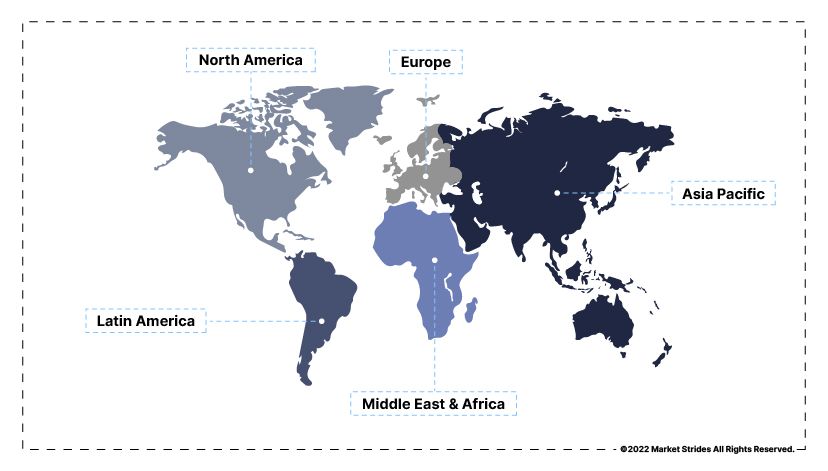The Electrostatic Sensor Market Research Report provides key market players with comprehensive insights essential for shaping their future growth plans. By offering detailed analysis on market size, trends, and regional dynamics, this report helps businesses identify emerging opportunities and potential challenges within the industry. Additionally, its segmental analysis, in-depth study of driving and restraining factors, and profiles of top industry players equip decision-makers with the critical knowledge needed to formulate strategic initiatives. Whether for expansion, product development, or competitive positioning, the data-driven insights of this report enable executives, managers, and strategists to make informed decisions that align with long-term growth objectives. Some of top market players in Electrostatic Sensor Market industry are as follows,
The Electrostatic Sensor Market Research Report provides a detailed segmentation analysis, focusing on both Type and Application categories, which are crucial for businesses seeking to optimize their strategies and identify targeted growth opportunities.
The Electrostatic Sensor Market is segmented into distinct categories, each tailored to meet specific customer needs and industry requirements. By analyzing these segments, businesses can gain valuable insights into the unique demands of each, enabling targeted product development and marketing strategies. This type-based segmentation also reveals the growth potential and performance of each category, allowing companies to focus on high-demand segments and maximize revenue. Ultimately, understanding these segments empowers businesses to refine their offerings, optimize resource allocation, and capitalize on emerging opportunities. Whether through the identification of emerging trends in new types or the expansion of existing ones, this detailed breakdown ensures that companies can effectively align their strategies with market preferences.
The Electrostatic Sensor Market is also segmented by application, providing a clear view of how different industries are utilizing the market's offerings. By analyzing the application-based segmentation, businesses can pinpoint which sectors are driving demand and where growth opportunities lie. This detailed segmentation not only helps companies to identify lucrative markets but also enables them to customize their solutions to better meet the specific needs of each application. Whether for enhancing product functionalities or refining service offerings, understanding the application-driven dynamics allows companies to position themselves as leaders in key sectors. This insight is especially useful for developing tailored marketing campaigns, targeting industry-specific decision-makers, and making strategic investments in high-growth applications.
Together, the Segmentation by Type and Segmentation by Application in the Electrostatic Sensor Market Research Report equips companies with the information needed to fine-tune their offerings, enter new market verticals, and capitalize on growth opportunities across different segments and applications.
The Electrostatic Sensor Market Research Report provides a detailed examination of the Electrostatic Sensor Market across various regions, highlighting the characteristics and opportunities unique to each geographic area.
North America holds a significant share in the Electrostatic Sensor Market, with the U.S. and Canada leading the region. The market in this area is well-established, offering a stable and mature environment for businesses looking to expand. Companies can benefit from a strong consumer base and the opportunity to cater to a wide range of customers across both countries within the Electrostatic Sensor Market.
Europe presents a diverse market for the Electrostatic Sensor Market, with Western Europe having a mature landscape, while Eastern Europe offers more emerging opportunities. Companies operating in this region can take advantage of the varied economic environments across different countries, making it an ideal area for businesses to diversify their market presence in the Electrostatic Sensor Market.
The Electrostatic Sensor Market in the APAC region encompasses a wide range of markets, from highly developed economies to emerging markets. Countries such as China, Japan, and India play a key role in shaping the market landscape. Businesses seeking to expand into the Electrostatic Sensor Market in APAC can explore opportunities in both well-established and growing regions across this vast and varied area.
The Electrostatic Sensor Market in the MEA region, with its combination of established economies in the Middle East and developing markets in Africa, presents a mix of opportunities. The Middle East has a well-defined market structure, while Africa offers more potential for companies looking to enter emerging markets. Both regions provide opportunities for businesses to expand their geographic reach within the Electrostatic Sensor Market.
The Electrostatic Sensor Market in Latin America consists of countries such as Brazil, Mexico, and Argentina, each with its own unique market characteristics. The region offers a balanced mix of established markets and emerging opportunities, making it an attractive region for businesses to explore within the Electrostatic Sensor Market. Companies can assess market conditions across various countries in the region for potential expansion.

This section describes the research process used to gather and analyze data. It builds credibility by demonstrating the report’s rigorous and systematic approach.
This section serves as the value proposition for potential buyers of the report. It outlines why the report is useful and how it can benefit businesses, investors, and stakeholders. Key reasons to purchase might include:
Request Table of Contents (TOC), Please Fill below form



